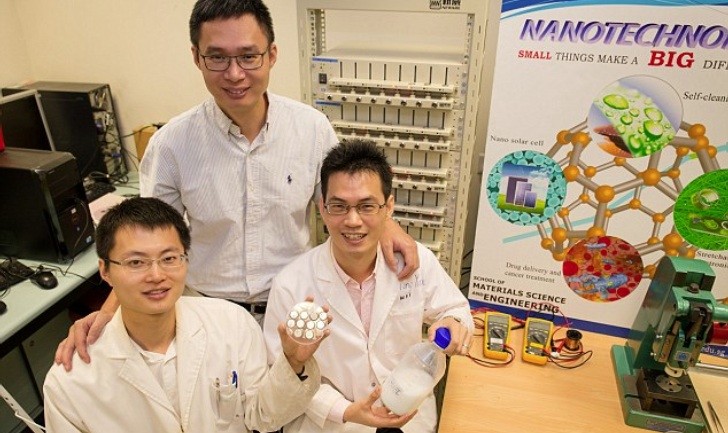Yeah, electric vehicles would have been a lot more common now if it wasn’t for the limitations current lithium-ion batteries come with. Pretty expensive and rather inefficient by comparing them to classic internal combustion cars. Scientists over the world are constantly trying to find a solution and the latest impressive result comes now from Singapore.
A team of scientists from the Nanyang Technology University (NTU) managed to put together a battery that will definitely change electric vehicles of today, as their prototype can be recharged up to 70 percent in just two minutes.
'Electric cars will be able to increase their range dramatically, with just five minutes of charging, which is on par with the time needed to pump petrol for current cars,' said Associate Professor Chen XiaodongProf Chen, that also leads the experiment.
Moreover, their battery is said to last ten times longer than current lithium-ion counterparts which usually hold up to about 500 recharge cycles. This will cut users’ expenses by not having to buy a new battery every 2 or 3 years, while it will also represent a greener solution since there will be less disposed units.
It’s natural microscopic structure resembles very small spheres, but scientists managed to transform them into nanotubes that are a thousand times thinner than a human hair.
Next, they put all these tiny tubes in a compound gel and replaced the usual graphite anode found in current batteries. Even at those tine scales, the nanotubes offer more surface than spheres for the chemical reactions to happen quicker, thus allowing for very fast recharging processes.
Sounds incredibly, but there’s a catch. The scientists haven’t told us anything about power density yet, which is the amount of power a battery can store. It’s useless to have a battery that can recharge in 5 minutes but lasts only 10 minutes, right?
Well, the team said that’s exactly what they are currently trying to improve. Professor Chen and his colleagues will also be applying for a Proof-of-Concept grant to build a larger battery prototype. The tech is expected to hit the market in two years.
'Electric cars will be able to increase their range dramatically, with just five minutes of charging, which is on par with the time needed to pump petrol for current cars,' said Associate Professor Chen XiaodongProf Chen, that also leads the experiment.
Moreover, their battery is said to last ten times longer than current lithium-ion counterparts which usually hold up to about 500 recharge cycles. This will cut users’ expenses by not having to buy a new battery every 2 or 3 years, while it will also represent a greener solution since there will be less disposed units.
How does the new battery works?
Titanium dioxide is the key. This abundant and cheap substance can be extracted from soil and it’s usually used as a food additive or in sunscreen lotions to absorb dangerous UV rays.It’s natural microscopic structure resembles very small spheres, but scientists managed to transform them into nanotubes that are a thousand times thinner than a human hair.
Next, they put all these tiny tubes in a compound gel and replaced the usual graphite anode found in current batteries. Even at those tine scales, the nanotubes offer more surface than spheres for the chemical reactions to happen quicker, thus allowing for very fast recharging processes.
Sounds incredibly, but there’s a catch. The scientists haven’t told us anything about power density yet, which is the amount of power a battery can store. It’s useless to have a battery that can recharge in 5 minutes but lasts only 10 minutes, right?
Well, the team said that’s exactly what they are currently trying to improve. Professor Chen and his colleagues will also be applying for a Proof-of-Concept grant to build a larger battery prototype. The tech is expected to hit the market in two years.
